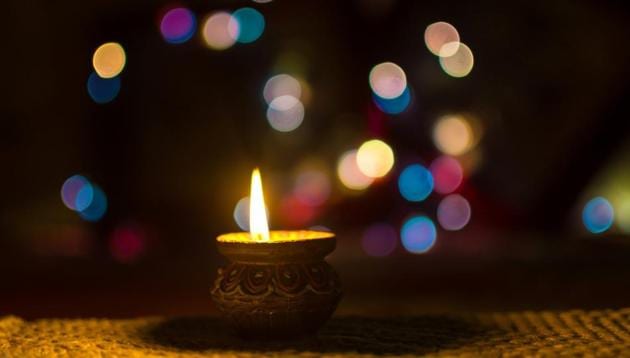Happy Diwali 2020: History and significance of the Festival of Lights
Diwali 2020: Also known as Deepawali, is the Hindu festival of lights which is celebrated by Indians all over the globe.
Diwali, also known as Deepawali, is the Hindu festival of lights which is celebrated by Indians all over the globe. Deepavali, which translates as ‘a row of lights’ is one of the most significant of all Hindu festivals and is celebrated over a period of 5 days. It is observed on the 15th day of the month of Kartika and in accordance with the Hindu lunar calendar, this month is considered the holiest. This year, Diwali will be celebrated on November 14.

Diwali 2020: History and significance
Diwali is not only significant because of its massive popularity and brilliant displays of fireworks but also because it symbolises the victory of light over darkness, of good over evil and of knowledge over ignorance. On this day, diyas, candles and lamps are placed all around the house, to ‘light’ the way to knowledge and victory. Each house is decorated with various assortments of coloured lights and diyas. The entire country is bathed in the soft glow of light and warmth emanating from every household, making it a truly wondrous sight to behold.
The celebration of Diwali also serves as a cleansing ritual, one that signifies letting go of all of the past year’s worries and troubles and stepping into the light. In the days leading up to Diwali, families get together to clean, renovate and decorate their respective households and workplaces with rangolis and diyas. Diwali marks the onset of winter and the beginning of all things new, both in nature and humanity.
On this day, celebrants dress themselves their finest, brand new clothing and offer prayers to the various Gods and Goddesses, according to their own familial traditions.
History
The celebration of Diwali can find its roots in ancient India and it is likely that it began as a significant harvest festival. And as with many Hindu festivals, the origins of Diwali differ from region to region, which can be vastly attributed to the culture of stories and legends being passed down through generations through the spoken word.
Some are of the belief that Diwali is the celebration of Goddess Laxmi’s marriage to Lord Vishnu. Some even consider this day as the auspicious occasion of her birthday, as it is a popular belief that she was born in the month of Kartika on a new moon (Amavasya).
In certain regions, like Bengal, this festival is dedicated to Goddess Kali, the dark Goddess of strength. In other regions, devotees offer prayers to the elephant-headed God, Lord Ganesh. But in all mythology and history, Diwali marks the day that Lord Rama returned to Ayodhya, after being in exile for 14 long years, to reclaim his throne and fulfil his duty. His return is all the more significant due to his victory over the demon king Ravana. It was in celebration of their King’s return, that the people of Ayodhya illuminated the kingdom with diyas, to light his way home.
Five days of celebration
Each of the five days of Diwali have their own significance and designation, where the first day – Naraka Chaturdasi marks the defeat of the demon Naraka at the hands of Lord Krishna and his wife Satyabhama.
On the second day – Amavasya, devotees pray to the Goddess Laxmi, as many believe that she is in a most benevolent moon during this period and often grants wishes to her followers. On Amavasya, people also narrate the story of Lord Vishnu, who took on the incarnation of a dwarf and banished Bali to hell. Only during the festival of lights is Bali permitted to roam the world again, to spread Lord Vishnu’s message of love, compassion and knowledge, and also light diyas along the way.
The third day – Kartika Shudda Padyami, Bali steps out of Hell and rules the earth as per the boons given to him by Lord Vishnu. The fourth day – Yama Dvitiya, also known as Bhai Dooj, is observed, and is associated with sisters inviting their brothers into their home.
The fifth day – Dhanteras, is a celebration of wealth and prosperity. It is celebrated two days before Diwali and people around the world try their hand at gambling as it is considered that with Goddess Parvati’s blessing, whoever gambles on this day will be showered with prosperity throughout the coming year. According to legend, Goddess Parvati played dice with her husband, Lord Shiva, on this day.
In addition to all the fun, gambling and firecrackers surrounding the celebration of Diwali, it is an inherently philosophical festival. One that places great significance on the ‘light’ and the prevalence of good over evil. This Diwali lets us pray to the Gods for guidance and patience during the Covid-19 pandemic. Have a happy and safe Diwali.
Catch your daily dose of Fashion, Taylor Swift, Health, Festivals, Travel, Relationship, Recipe and all the other Latest Lifestyle News on Hindustan Times Website and APPs.



